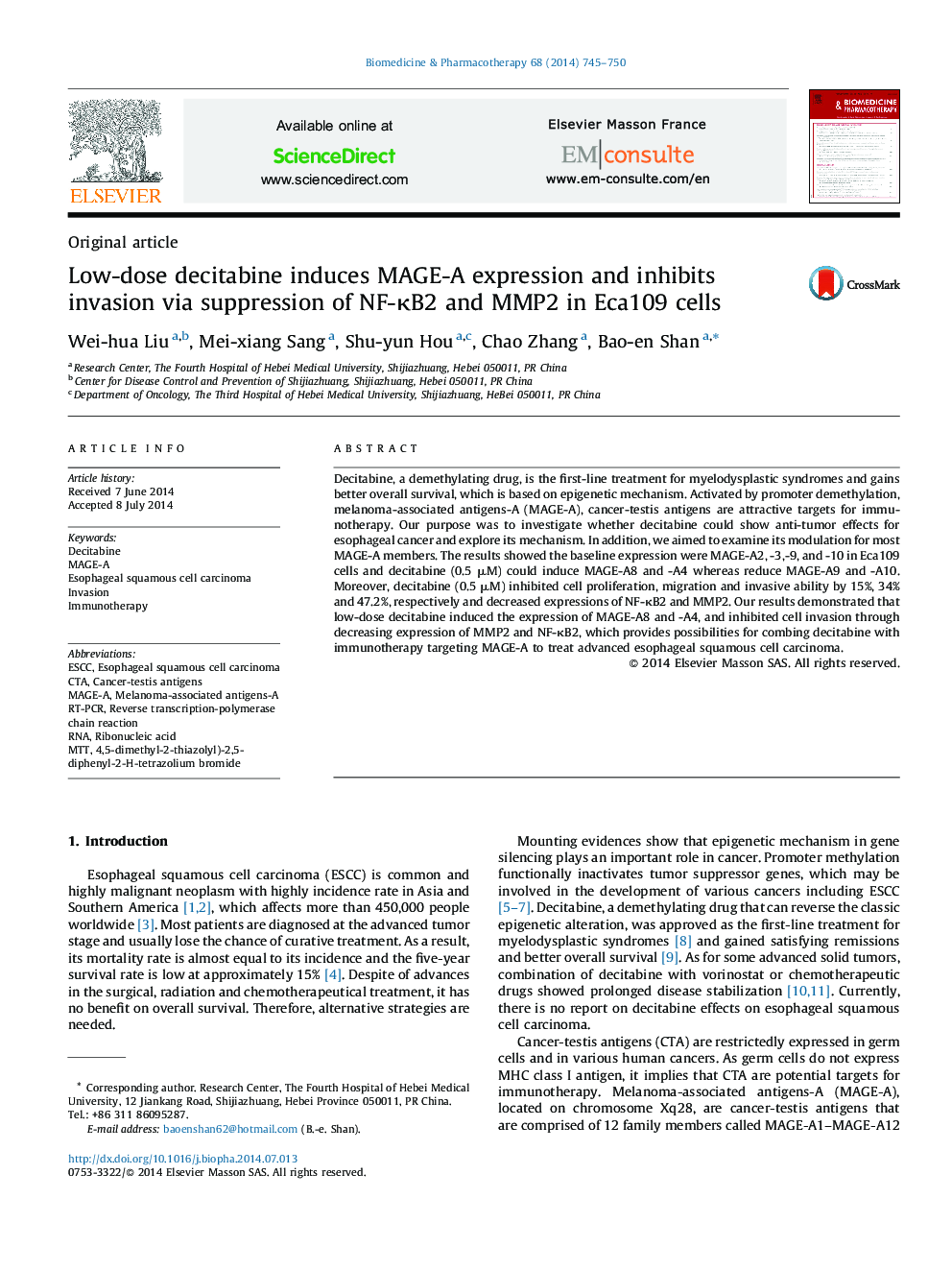| Article ID | Journal | Published Year | Pages | File Type |
|---|---|---|---|---|
| 2524922 | Biomedicine & Pharmacotherapy | 2014 | 6 Pages |
Decitabine, a demethylating drug, is the first-line treatment for myelodysplastic syndromes and gains better overall survival, which is based on epigenetic mechanism. Activated by promoter demethylation, melanoma-associated antigens-A (MAGE-A), cancer-testis antigens are attractive targets for immunotherapy. Our purpose was to investigate whether decitabine could show anti-tumor effects for esophageal cancer and explore its mechanism. In addition, we aimed to examine its modulation for most MAGE-A members. The results showed the baseline expression were MAGE-A2, -3,-9, and -10 in Eca109 cells and decitabine (0.5 μM) could induce MAGE-A8 and -A4 whereas reduce MAGE-A9 and -A10. Moreover, decitabine (0.5 μM) inhibited cell proliferation, migration and invasive ability by 15%, 34% and 47.2%, respectively and decreased expressions of NF-κB2 and MMP2. Our results demonstrated that low-dose decitabine induced the expression of MAGE-A8 and -A4, and inhibited cell invasion through decreasing expression of MMP2 and NF-κB2, which provides possibilities for combing decitabine with immunotherapy targeting MAGE-A to treat advanced esophageal squamous cell carcinoma.
